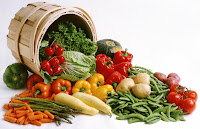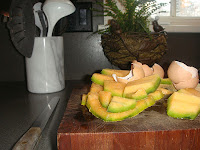Keeping the Ranch Organically Clean
By Clifford WoodsJust because you live on a ranch doesn't mean that you have to live in the filth and dirt that goes along with ranch life. People have been more enthusiastic about cleaning their homes in a green way, and if you are dedicated to keeping an all organic ranch, then you should bring that same style of thinking into the ranch as well.
Now you can buy all sorts of products that claim to be “all-organic”, but they don’t always offer the power that you need to get the smells, filth and dirt off a ranch. You might need to really start making your own organic ranch cleaners, so that you know exactly what is going into them and you will be able to determine and measure out exactly what it is that you want to use for keeping the ranch organically clean.
Making your very own organic cleaners means that you control the scent, the ingredients and even for what cleaning purposes. You can be confident in knowing that it will be safe for you, your family, the livestock, your neighbors, and any pets that you might have as well.
Things like making your own all natural dish soap is as easy as getting yourself a large container of Castile Soap in its liquid form and then adding the scents that will make you happy. Try lemon grass oil, lavender oil, lime oil, orange oil and so on. When doing so, you won’t have to worry about the wash water contaminating any other parts of the ranch either.
What about if you have dirty windows that need to be taken care of? You can use all organic vinegar, which you can buy, add a bit of natural spring water and then add in a few drops of your favorite oil, especially things like lemon oil or lime oil, and you combine them all into a spray bottle.
Followed by that, simply using recycled newspaper, you can get your ranch windows sparkling clean. Organic ranch cleaners are really something that you should be making yourself. It might take a bit of time, but it's really worth it in the end for all the cleanliness and health benefits you get out of it.
How about cleaning those hard to get to floors that you have around the ranch? You can make your very own floor washes that can be used on all types of floors all over the ranch. Combine a bucket full of hot spring water, add lemon juice, about a fourth of a cup, then add your favorite citrus oils, lemon, lime, grapefruit, and wash your floors like you would if you were washing them with any normal cleaner. Now, there won’t be much of foam or froth, but it will get up the grease, grime and dirt, so that you can have nice clean floors once more.
Keeping the ranch organically clean by using organic cleaners doesn't mean you have to spend an arm and a leg on them.
Author: Clifford Woods is the CEO of Effective Environmental Services and Organic Environmental Technology
They Brew Beneficial Microorganisms that Eat Toxins and Offer Environmentally Friendly Products















